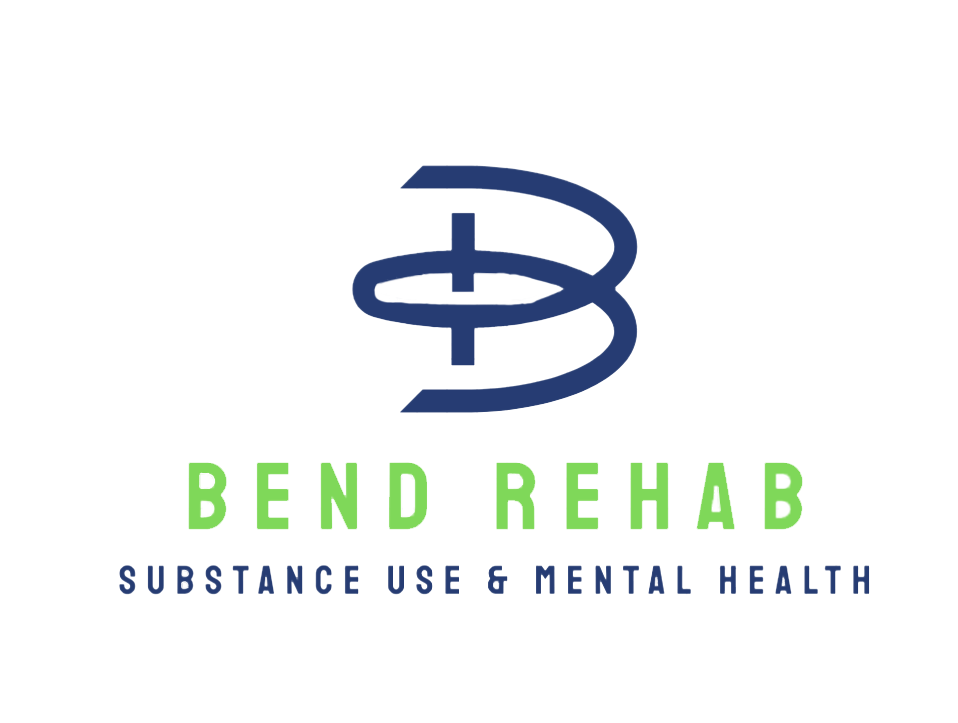A Sneak Peek: Inpatient Rehab in Bend OR
Substance use disorders are life-altering and often life-threatening conditions that require a multifaceted, personalized treatment plan. For individuals in Bend, Oregon, seeking a safe, structured environment to recover from addiction, inpatient rehab in Bend OR offers comprehensive care that targets not just substance use, but also the root causes, emotional trauma, and mental health conditions that frequently co-occur with addiction. This blog explores why inpatient rehab in Bend OR is effective and how different treatment modalities and support systems play a critical role in long-term recovery. We will dive deep into the components that make rehab successful—including addiction intervention, detox programs, inpatient and outpatient levels of care, evidence-based therapies like CBT, DBT, and EMDR, and supportive services like relapse prevention, mentoring, and family integration.
Understanding the Foundation: What Is Inpatient Rehab?
Inpatient rehab in Bend OR refers to a residential addiction treatment program where individuals live at a facility and receive round-the-clock care. This setting allows patients to focus entirely on their recovery without distractions or external triggers. Unlike outpatient services where patients return home each day, inpatient treatment provides a structured environment conducive to healing. Key benefits of inpatient rehab include:
•24/7 supervision and medical support
•Immediate access to therapists, case managers, and medical professionals
•A drug- and alcohol-free environment
•Daily schedules filled with therapy, education, and support sessions
•Reduced risk of relapse during early recovery
Addiction Intervention: A Vital First Step
Many individuals in the grip of addiction are unable or unwilling to acknowledge the severity of their condition, often due to denial, fear, or a lack of awareness about the impact their behavior has on themselves and those around them. That’s where addiction intervention becomes a powerful tool, offering a structured and compassionate way to help them recognize the problem, understand the need for change, and take the first steps toward recovery. A professional addiction intervention in inpatient rehab in Bend OR serves as the catalyst for change by:
•Involving trained interventionists who guide families through the process
•Creating a safe space to express concern without blame
•Presenting a clear treatment plan for entering inpatient rehab
•Breaking through denial and resistance with compassion and clarity
The goal of an intervention is not to shame the individual but to provide a supportive and persuasive pathway toward treatment.
Detox Program: Safe and Medically Supervised Withdrawal
Detoxification is often the first and one of the most crucial clinical steps in addiction recovery. At our inpatient rehab in Bend, OR, detox is a medically supervised process carefully designed to help individuals safely manage withdrawal symptoms as harmful substances leave the body. This phase ensures that clients are physically stabilized, reducing health risks associated with withdrawal. With 24/7 medical support, our compassionate team provides a safe and supportive environment, laying the foundation for long-term recovery and preparing clients for the next stages of treatment. Why detox matters:
•Prevents medical complications from withdrawal (especially with alcohol, benzodiazepines, or opioids)
•Eases discomfort through medication-assisted treatment (MAT)
•Provides emotional support during a vulnerable period
•Prepares patients for deeper therapeutic work
Once detox is complete, patients are physically stabilized and ready to begin comprehensive addiction treatment.
Inpatient and Outpatient Programs: A Continuum of Care
Recovery is not a one-size-fits-all process, as every individual’s journey is unique. Inpatient rehab in Bend, OR, typically provides a combination of inpatient and outpatient programs designed to meet different needs. Inpatient programs offer a structured, immersive environment for those requiring intensive care and around-the-clock support, while outpatient programs provide flexibility for individuals who may have work or family responsibilities but still need professional guidance. These tailored options help address varying levels of addiction severity and different stages of recovery, ensuring that each person receives the care suited to their specific situation. Inpatient Program Benefits:
•Intensive structure and routine
•Round-the-clock medical and emotional support
•Daily individual and group therapy
•No access to drugs or alcohol
•Ideal for severe or long-term substance use disorders
Outpatient Program Benefits:
•Flexibility for work or school obligations
•Continued therapy after inpatient discharge
•Step-down care for transitioning to everyday life
•Supportive group sessions and relapse prevention
Having access to both inpatient and outpatient services ensures a smooth and continuous treatment path tailored to each individual’s needs.
Individual & Group Therapy: The Heart of Emotional Healing
Therapy is the cornerstone of recovery in inpatient rehab in Bend, OR, playing a vital role in the healing process. Both individual and group therapy provide essential platforms for self-reflection, emotional release, and behavioral change. Individual therapy allows for personalized attention, helping individuals uncover the root causes of their struggles and develop tailored coping strategies. Group therapy, on the other hand, fosters a supportive community where participants can share experiences, build connections, and learn from one another. Together, these therapeutic approaches create a comprehensive foundation for lasting recovery and personal growth.
•One-on-one sessions with a licensed therapist
•Focused on personal trauma, triggers, and life goals
•Tailored treatment plans with progress tracking
•Builds trust and promotes deep emotional healing
•Peer-led or therapist-guided discussions
•Encourages connection and reduces isolation
•Provides real-time feedback and accountability
•Promotes empathy, understanding, and support
Together, these therapies create a well-rounded healing environment where individuals learn to manage emotions, rebuild relationships, and rediscover purpose.

Evidence-Based Therapies: CBT, DBT, Motivational Interviewing, and EMDR
Modern inpatient rehab facilities in Bend, OR, offer comprehensive care by integrating a variety of evidence-based therapies, all designed to support long-term recovery. These therapies address the cognitive, emotional, and behavioral aspects of addiction, ensuring a holistic approach to healing. From individual counseling and group therapy sessions to holistic treatments like mindfulness and yoga, these programs are tailored to meet the unique needs of each individual. By focusing on the root causes of addiction and providing the tools necessary for sustainable change, these facilities empower individuals to build healthier, more fulfilling lives..
Cognitive Behavioral Therapy (CBT)
CBT helps patients identify and challenge distorted thinking patterns that contribute to addiction.
•Teaches coping skills and emotional regulation
•Reduces anxiety, depression, and relapse risk
•Encourages problem-solving and goal setting
Dialectical Behavior Therapy (DBT)
DBT combines cognitive strategies with mindfulness and emotional regulation.
•Ideal for those with intense emotional swings or trauma
•Focuses on acceptance and change simultaneously
•Enhances interpersonal effectiveness
Motivational Interviewing (MI)
MI uses a client-centered approach to spark motivation for change.
•Builds readiness for treatment
•Reduces resistance and increases commitment
•Respects autonomy while guiding toward positive action
Eye Movement Desensitization and Reprocessing (EMDR)
EMDR is particularly effective for clients with trauma histories.
•Reprocesses traumatic memories with guided eye movements
•Reduces emotional reactivity and stress
•Helps clients desensitize and resolve painful past events
These therapies are usually delivered by licensed professionals with specialized training, ensuring high standards of care within the program.
Relapse Prevention: Building a Future of Resilience
Preventing relapse is one of the most critical goals of inpatient rehab in Bend, OR. Relapse, which often occurs when individuals return to their everyday environments, is common but can be effectively managed with the right tools and strategies. Comprehensive inpatient rehab programs focus on providing individuals with coping skills, emotional support, and relapse prevention techniques to help them maintain long-term recovery. By addressing underlying triggers and building a strong foundation for sobriety, these programs aim to reduce the risk of relapse and empower individuals to lead healthier, more fulfilling lives. Effective relapse prevention programs include:
•Trigger identification and management training
•Stress-reduction techniques (e.g., mindfulness, breathing exercises)
•Coping skill development for emotional regulation
•Routine practice of self-care and wellness habits
•Emergency action plans for high-risk situations
•Continued therapy and support after discharge
Education is key in relapse prevention. Patients learn not only why they use substances but also how to cope in healthier, more constructive ways.
Mentoring Programs: Recovery Through Connection
One of the unique components of inpatient rehab in Bend, OR, is the availability of mentoring programs designed to provide personalized support throughout the recovery process. These programs pair individuals in early recovery with peer mentors or recovery coaches who have lived experience with addiction and recovery. Mentors not only offer guidance and encouragement but also share their own stories and coping strategies, helping individuals feel understood and less alone in their journey. This connection fosters a sense of trust and accountability, empowering those in recovery to stay committed to their goals and navigate challenges with confidence. Benefits of mentoring in rehab:
•Provides hope and inspiration through shared experience
•Offers accountability and encouragement outside of therapy
•Builds trust and connection in the recovery community
•Helps navigate life after treatment with practical advice
Many mentors continue their relationships with patients post-rehab, offering guidance during the critical re-entry phase.
Family Support: Healing the Whole System
Addiction doesn’t just affect the individual—it impacts families, relationships, and entire support systems. Loved ones often struggle with emotional pain, confusion, and the challenges of supporting someone facing addiction. That’s why family support is a crucial component of effective inpatient rehab in Bend, OR. By involving family members in the recovery process, rehab programs can help rebuild trust, improve communication, and create a stronger foundation for long-term healing and sobriety. Family programming typically includes:
•Family therapy sessions to rebuild communication
•Education on addiction as a disease, not a moral failure
•Setting healthy boundaries and rebuilding trust
•Support groups for parents, spouses, and siblings
•Workshops on codependency, enabling, and emotional wellness
When families heal together, the chances of long-term success increase dramatically.
The Link Between Substance Use Disorders and Mental Health
A significant portion of individuals who seek inpatient rehab in Bend OR also suffer from co-occurring mental health disorders such as:
•Depression
•Anxiety
•Bipolar disorder
•PTSD and complex trauma
•Borderline Personality Disorder
•Schizophrenia spectrum disorders
This dual diagnosis requires integrated treatment that addresses both the addiction and the mental illness simultaneously. Failing to treat both increases the likelihood of relapse or recurring psychiatric episodes.
Integrated treatment includes:
•Psychiatric evaluations and medication management
•Trauma-informed care and therapeutic safety
•Cognitive and behavioral therapies tailored for dual diagnosis
•Stabilization of mood and anxiety symptoms
•Psychoeducation for clients and families
Addressing mental health and substance use in tandem leads to a more sustainable recovery and a higher quality of life.
Aftercare: Sustaining Recovery Beyond the Facility
The journey toward recovery doesn’t end after inpatient treatment. In fact, it’s just the beginning. Inpatient rehab in Bend, OR, places a strong emphasis on aftercare planning to ensure clients have the tools and support needed to maintain long-term sobriety. This includes creating personalized plans that may involve outpatient care, therapy sessions, support groups, or sober living arrangements. The goal is to help clients transition smoothly into independent living or lower levels of care, giving them the confidence and resources to continue their recovery journey successfully. Effective aftercare services may include:
•Sober living arrangements
•Continued outpatient therapy
•Alumni programs and check-ins
•12-step meetings or alternative recovery groups
•Ongoing case management and peer support
Aftercare is where many people discover their long-term rhythm of sobriety. By staying connected to resources, therapy, and a recovery network, individuals are better equipped to handle life’s inevitable challenges without returning to substance use.
Conclusion: Why Inpatient Rehab in Bend OR Works
The effectiveness of inpatient rehab in Bend OR lies in its ability to provide comprehensive, individualized, and compassionate care. Recovery is not just about stopping drug or alcohol use—it’s about rediscovering a life worth living. If you or someone you love is struggling, don’t hesitate to reach out to our knowledgeable staff today for assistance by calling 1 (541) 802-7214 or visiting our website. The combination of personalized care, evidence-based practices, and a supportive environment creates a powerful foundation for lasting sobriety and emotional wellness. Recovery is possible. Healing is real. And the journey begins today—right here in Bend, Oregon.




